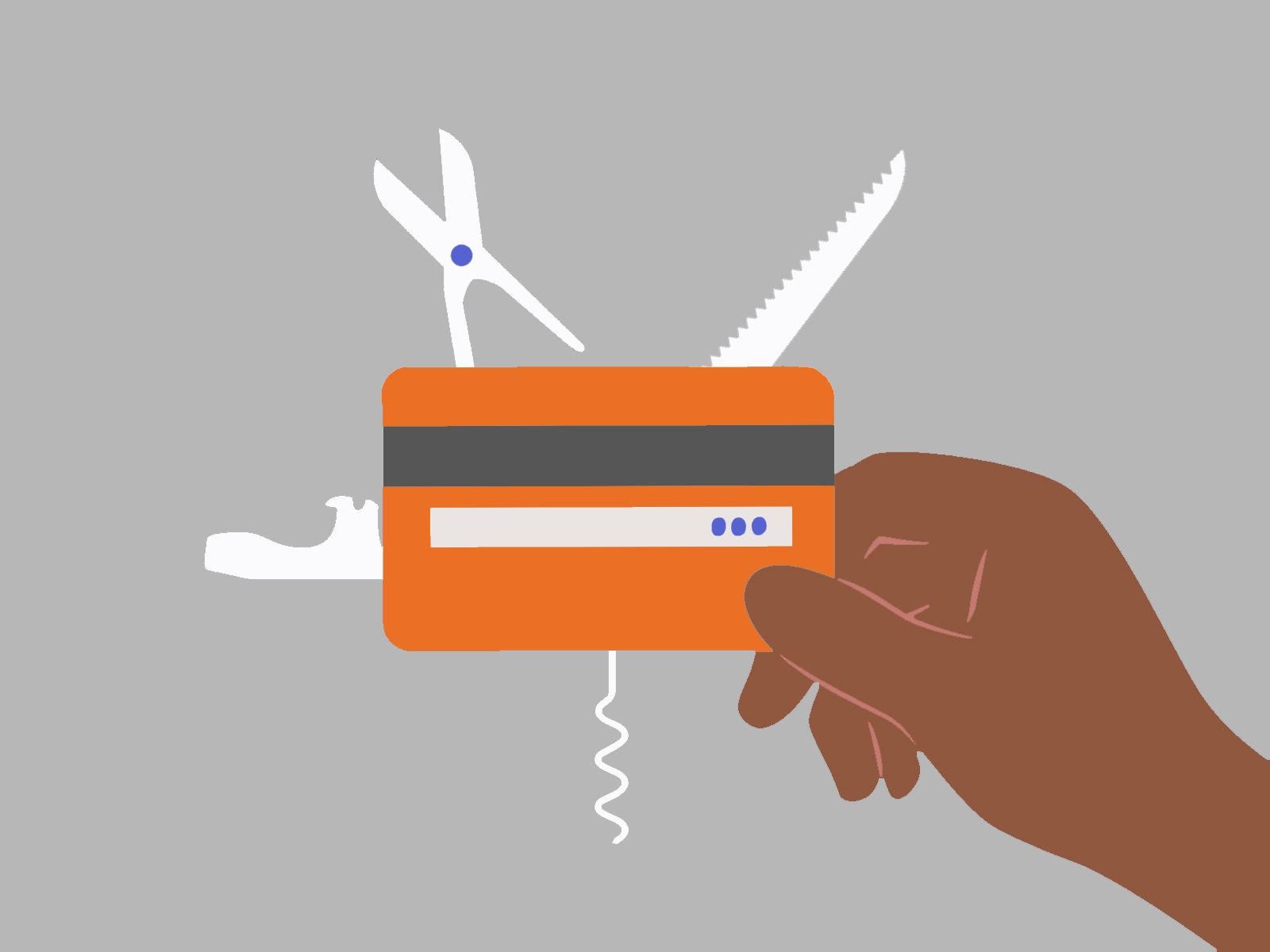How can I save when my rent is so high?
If you're facing high rent, you're not alone — especially if you live in an urban area. According to a report by Rentals.ca, Canada's average rent hit a record high of $2,117 in August 2023, up 9.6% over a year earlier. Building up your savings might be the furthest thing from your mind when you've got bills and rent to pay.
Here are some practical strategies to help you save money despite expensive rent. You might be surprised how small lifestyle changes can help you achieve your savings goals.
Assess your expenses
First, you'll want to analyze your current spending habits to identify areas for potential savings. An easy way to do this is to review your credit card statements from the past three months to see where you spend your money. Many statements make this task easy, by breaking your spending down into categories, such as groceries, entertainment or utility bills. Armed with this knowledge, you can start thinking about where you can cut back and find some extra money to tuck into your savings.
Create a budget
The key to smart money management is having a budget. A budget will give you a big-picture view of your income, expenses and savings. It's a simple way to track how much money flows in and out of your household every month. You can create a realistic budget with a spreadsheet, tool or app.
Within a budget, there are two categories of expenses: fixed and variable. Fixed expenses are recurring costs such as your rent, cell phone bill, and gym membership. Variable expenses, such as groceries, gas, clothing, and entertainment, can fluctuate.
Fixed expenses are easier to plan for since you generally know how much you need to pay each month, while it's harder to know how much you should budget for variable expenses.
One popular budgeting style recommends putting aside 20 percent of your income toward your savings. Of course, saving 20 percent of your income may not be feasible for everyone, so feel free to modify this rule of thumb to meet your reality. Even saving 5 to 10 percent of your income a month can be a great first step.
Cost-cutting strategies to help you increase your savings
There are many ways to cut down your spending across different categories. Below are some helpful tips for saving on everyday expenses, from housing to entertainment.
Manage housing expenses
There's no way around it—housing in Canada is expensive, but there are a few ways to pay less for housing.
- Explore more affordable housing options. Living in a downtown area can be expensive. Consider expanding your search to a more affordable neighbourhood. If you're looking for a condo or an apartment, maybe choosing a building with fewer amenities could help. (How often were you going to go swimming anyway?)
- Downsize to a smaller place. Going from two bedrooms to one can shave off a few hundred dollars a month from your rent. Consider moving to a smaller apartment if you don't need the extra space. Plus, the more rooms you have, the more trips to IKEA you'll make to fill them with stuff!
- Consider roommates or shared accommodations. Having roommates allows you to split living expenses. A written agreement outlining the expectations, costs, guest policies, and house rules will ensure everyone is on the same page with the shared responsibilities and rooming arrangements.
- Cast a wide net for accommodations. Announce to your network over social media that you're in the searching for a new place. There might be someone willing to share or sublet an apartment for a decent price.
- Negotiate with your landlord. You may be able to negotiate with the landlord to lower your rent, especially if you can prove that you're a reliable tenant. An employment letter, paystubs to verify your income, credit score and report, along with a government photo ID, are common documents you may need to share during the screening process. You can boost your chances of getting accepted by having a previous landlord share a testimonial and confirm you pay your rent on time.
- Move back in with your parents. For some this idea may be a non-starter, or a last resort, but if you make this reverse move with the intention of keeping it temporary — perhaps with a move-out date in mind — it can be a great way to trim your debts and boost your savings, with an added benefit: family bonding time.
Reduce utility bills
Heat, cooling, electricity and running water are basic daily necessities, and being mindful of your usage can lower your utility bills. To reduce energy consumption, turn down the heat when it's cold and layer on an extra sweater. In warm weather, turn your AC off when you're not at home. You can install a smart thermostat to monitor and control your usage from your smartphone. You can replace old light bulbs with more efficient LEDs.
To reduce water usage, take shorter showers and save your laundry until you have a bigger load instead of doing several small ones. Note that it's often cheaper to run the electricity during off-peak hours. And don't forget to turn off the lights and unplug appliances when you're not using them.
Practicing these energy-saving tips could mean extra money in your bank account at the end of the month.
Minimize grocery expenses
There are many ways to save on groceries without compromising on quality. First, preparing your meals at home is not only a smart way to manage costs — it's also healthier. Creating a weekly meal plan will make you less tempted to impulse buy at the grocery store and helps you waste less food.
Try taking advantage of coupons and deals to stay within your grocery budget while saving the planet. Oddbunch saves you time and money by delivering a box of imperfect fruits and vegetables to your door. Too Good To Go allows you to rescue unsold food at your favourite restaurant. And you can receive discounts and divert food from the landfill with Flashfood.
Don't forget to stock up your pantry when items go on sale. Making bulk purchases helps you get the best price, and you can freeze certain items for future use.
Cut back on entertainment costs and dining out
It's nice to meet up with friends for drinks and dinner after a long day of work, but that fun social time can greatly impact your wallet.
A more affordable alternative to paying for an expensive night out is to have people over to your home for wine and cheese or host a potluck where everyone can bring a dish. Reducing your takeout or dining expenses each week can have a huge effect on your spending.
If you're looking to visit a tourist attraction, eat at a restaurant, or catch a show, do your research in advance to cut back on costs. Going out in cities like Toronto, Montreal and Vancouver can get expensive fast, but it doesn't have to be that way.
You can typically find deals through discount websites such as Groupon, Travelzoo and Perkopolis. Some employers, alumni groups, or professional associations may also have partnerships and offer exclusive discounts.
Change your financial mindset and spending habits
Cultivating a money-saving mindset will help you reduce unnecessary spending and prioritize saving money. It's as simple as identifying your wants versus your needs. With practice, you'll develop financial discipline each time you say no to a nice-to-have, but not absolutely necessary item, like the latest video game, and stick to your goals.
The key is delayed gratification. For example, updating your wardrobe. You might not be able to get the newest looks as soon as they are available. Instead, you can go to an outlet store, wait for it to go on sale at the end of the season, or go thrifting. You still get what you want, but you spend less to get it, and you avoid impulse buying, which can wreak havoc on your budget.
Negotiate your bills
Next, apply that money-saving mindset to your monthly subscriptions, memberships, and banking fees. Your cell phone, internet, gym membership, auto insurance, and student loan fees are areas where you may be able to flex your negotiating power to ask for lower rates, or you can switch to a cheaper provider. It's an easy way to reduce your monthly expenses, that only costs you a bit of time.
Think long-term with your financial planning
You probably have loftier goals that you want to accomplish. Whether travelling the world, starting a family, or saving for retirement, you'll want to create a long-term savings plan to make sure you can pay for everything.
Write down your goals, how much they'll cost and the date of when you want to achieve them. Then, you can break it down to see how much you'll need to save each week or month. The earlier you start saving and investing your money, the easier it'll be to reach your financial goals (thanks to your new BFF, compound interest, i.e. the interest you earn on your interest).
Create an emergency savings fund
Unexpected expenses can pop up at any moment. If your car breaks down, you lose your job, or you can't work for any reason, an emergency savings fund becomes your lifeline.
Create a separate savings account and automate your savings every time you receive a paycheque to build your emergency fund. Generally, experts advise you to save up between three to six months' worth of expenses.
Try these creative solutions for extra income
There comes a point where there's only so much you can save—but you may be able to find ways to earn more! If you find that you're being squeezed every month, consider exploring side gigs and part-time work. Easy ways to earn extra cash are babysitting, dog walking, freelancing or selling unused household items.
Maximizing your earning potential will get you closer to your savings goals. Even though working additional hours may not sound enticing, if it's temporary, it can be beneficial if you have some debt to pay off or want to save for something specific.
Build a support network
Working toward your financial goals can feel like a lonely journey. So why not connect with like-minded individuals on the same path as you? You can join online personal finance communities and connect with group members. A few popular and active communities are Canadian Savings Group and Choose FI Canada on Facebook and r/PersonalFinanceCanada on Reddit. Group members will share tips and resources, and you can lean on them for support or advice. (Just be careful since most commenters aren't professional financial advisors or planners.)
Final thoughts
There's no doubt that with soaring rent, it can be tough to save money. Whether you're creating a budget, finding more affordable housing, taking on a side gig, or cutting out unnecessary expenses, now you have some key strategies to build savings while paying high rent.
By using some of these strategies to take small steps forward (and with a bit of discipline), you'll be watching your savings grow before you know it.










